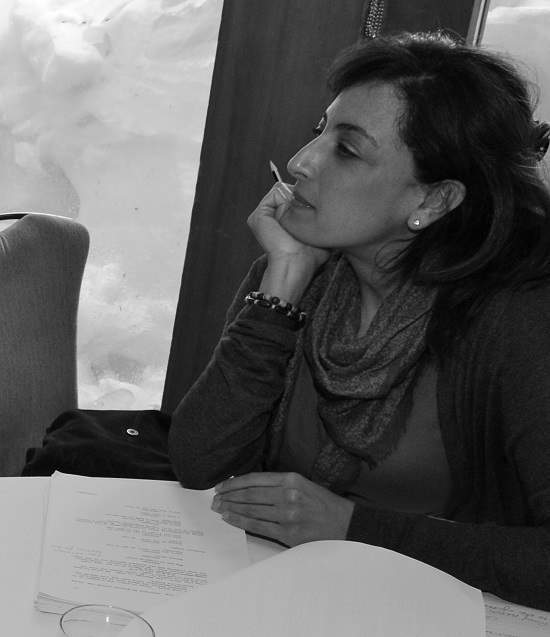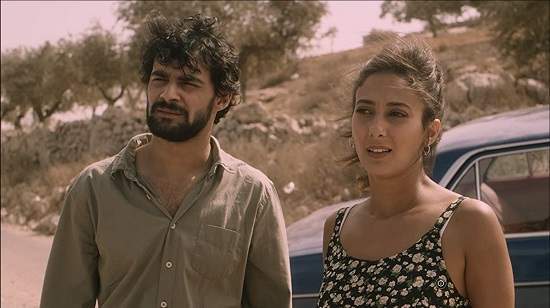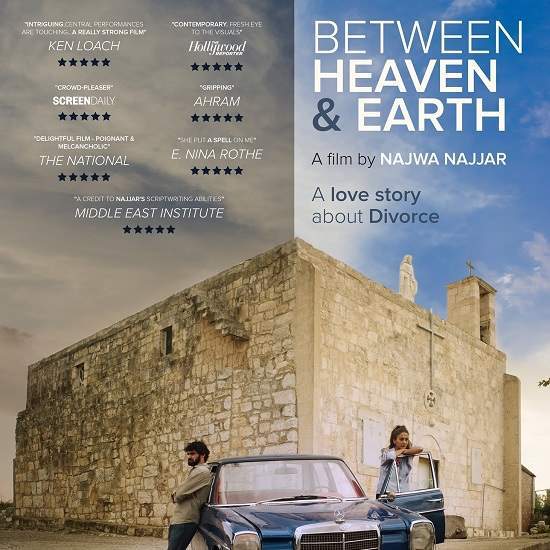AMMAN — "Cinema is a kind of private conversation that
tells a story, and I try to tell stories of Palestine. Today’s Palestinian
cinema is a way of documenting and dating what the occupation is trying to
erase," said Palestinian filmmaker Najwa Najjar.
اضافة اعلان
 An undated photo of Najwa Najjar. (Photo: IMDB)
An undated photo of Najwa Najjar. (Photo: IMDB)
Najjar is a Jordanian Palestinian filmmaker who lives in the
occupied Palestinian territories, and uses cinema to tell stories of her land,
people and history. As she says, “the Palestinian cinema of today is a
portfolio of the legacy of future generations; it must therefore be supported
and developed. It is a powerful weapon in the difficult living conditions we
live in Palestine”.
Najjar’s prized films — short documentaries, fiction and
features — count among them "Naim and Wadee'a” (1999), “Quintessence of
Oblivion" (2000), "A Boy Named Mohamed" (2002), “Blue Gold”
(2004), “They Came from the East”; “Yasmine Tughani” (2006) is her first work
of fiction.
 Between Heaven and Earth movie poster. (Photo: Facebook)
Between Heaven and Earth movie poster. (Photo: Facebook)
Najjar’s debut film was “Pomegranates and Myrrh” (2009); it
was followed by “Eyes of a Thief“ (2014), which was selected as the Palestinian entry for the Best Foreign
Language Film at the 87th Academy Awards.
In 2019, Najjar, produced her third feature, “
Between Heaven and Earth”, which follows the love story of a middle-class couple. According to
Najjar, the story deals with the children of martyrs and their lives after the
assassinations by the occupying forces, and raises the issue of arbitrary
assassination of prominent politicians, intellectuals and militants, and how
the lives of their families are turned upside down inside and outside
Palestine.
The film takes the viewer to forgotten villages and occupied
cities, tackles lost identity and divorce, makes one move between past and
present, and takes the audience to the land associated with the three monotheistic
religions, turning to a political cause and the reality of a monstrous
occupation and land, an abandoned population and an identity that the occupier
wants to obliterate by any means.
 Between Heaven and Earth movie poster. (Photo: Facebook)
Between Heaven and Earth movie poster. (Photo: Facebook)
Najjar, who sees the
fracture of her country as a wound to the heart, will then stage a road movie
that leads a couple who left for the Occupied Territories to get their divorce
papers to rediscover their land as well as to discover themselves.
Najjar, who studied
filmmaking in the US, was aware that the story told in Western books is not the
same as the one handed down by her parents and grandparents.
“It is the cinema that
has helped me rectify the narrative of the region so that the truth is not
truncated or disfigured. Because it is the only medium that can correct
everything. Threatened for years for different reasons (religion, culture,
social class), the fighter, despite the curse that falls on this piece of land,
on the entire region, does not lose hope.”
In her films, Najjar
tell Palestinian stories inspired from reality, people’s ordinary lives under
extraordinary circumstances, lives that have been overlooked.
 Between Heaven and Earth movie poster. (Photo: Facebook)
Between Heaven and Earth movie poster. (Photo: Facebook)
As one of few female Palestine film directors, Najjar
believes that the social and the political intersect in her films, since they cannot
be separated.
After presenting several documentaries, Najjar found in fictional
films creativity, as she gives her movie characters depth and make them live looking
for love and hope at every corner.
Her upcoming film project will be titled “Kiss of a stranger.”
It will be a musical reflecting the golden age of Egyptian cinema of the 1930s.
Najjar digs deep into the corridors of memory of
Palestinians; penetrating deep into the soul, she uses simplified cinematic
language, simplifying the narration, deconstructing and documenting without
abandoning the artistic vocabulary, and keeps Palestine and Palestinians the
main protagonists of her productions.
Read more Entertainment



